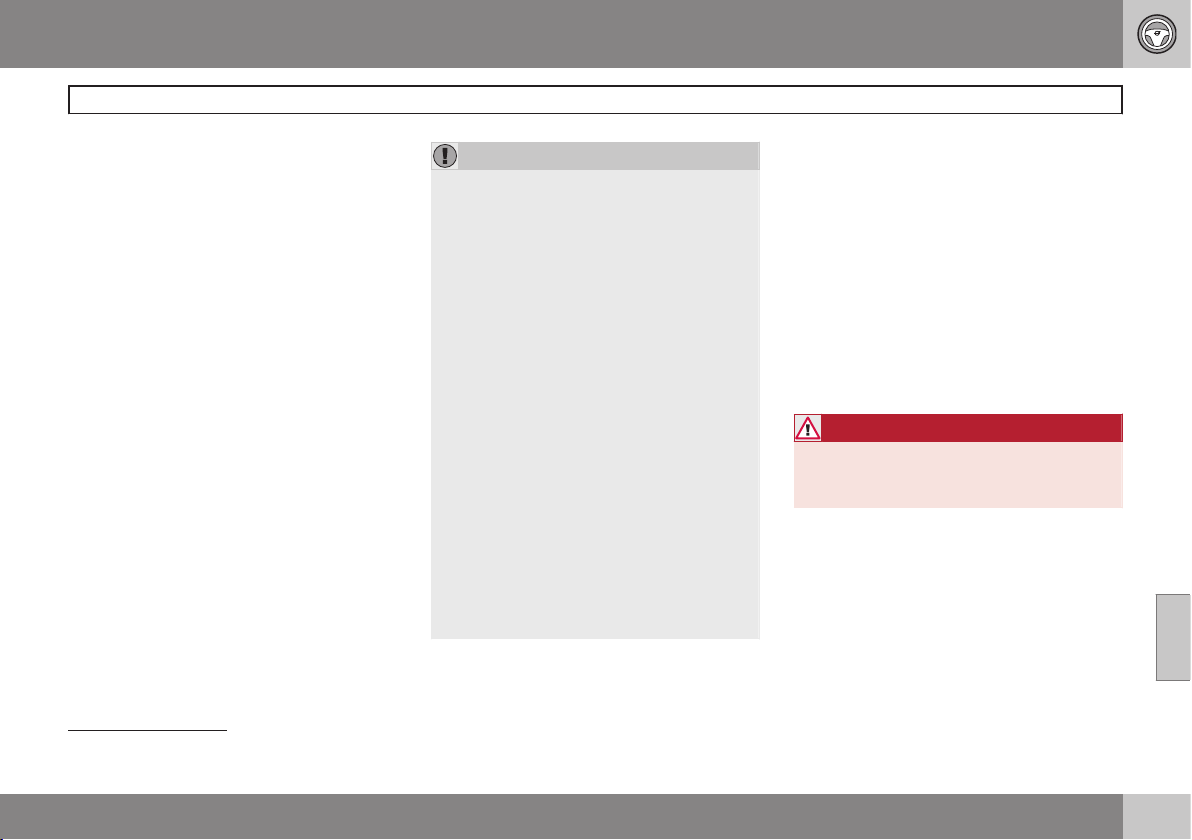Loading ...
Loading ...
Loading ...

07 During your trip
Emergency towing
07
297
Towing the vehicle
1. With the remote key fully pressed into the
ignition slot
1
, press START/STOP
ENGINE for approximately 2 seconds to
activate ignition mode II.
2. The remote key must remain in the igni-
tion slot
2
for the entire time that the vehi-
cle is being towed.
3. Keep the tow rope taut when the towing
vehicle slows down by applying light
pressure on the brake pedal. This will
help prevent jarring movements of the
vehicle being towed.
4. Be prepared to apply the brakes to stop
the vehicle being towed.
CAUTION
General towing precautions:
•
Please check with state and local
authorities before attempting this type
of towing, as vehicles being towed are
subject to regulations regarding maxi-
mum towing speed, length and type of
towing device, lighting, etc.
•
If the vehicle's battery is dead, attach
jumper cables (see page 123) to pro-
vide current for releasing the electric
parking brake and to move the gear
selector from the P position to N. If
this is not possible, see page 128 for
information about manually overriding
the shiftlock system to move the gear
selector from P to N.
•
Maximum speed: 50 mph (80 km/h).
Do not exceed the maximum allowable
towing speed.
•
Maximum distance with front wheels
on ground: 50 miles (80 km).
•
The vehicle should only be towed in
the forward direction.
Having the vehicle towed by a tow
truck
Call for professional help from an authorized
towing company.Volvo recommends the use
of flat bed equipment.
The towing eyelet may be used to pull the
vehicle onto a flatbed tow truck if:
•
The angle of the tow truck’s ramp is not
more than 12 degrees from a horizontal
plane
•
The vehicle’s wheels rotate freely and roll
straight ahead
WARNING
No person or object should be behind the
tow truck while the vehicle is being pulled
up onto the flatbed.
1
Not necessary in vehicles with the optional keyless drive.
2
For vehicles with the the optional keyless dirive, the remote key must be in the vehicle.
Loading ...
Loading ...
Loading ...